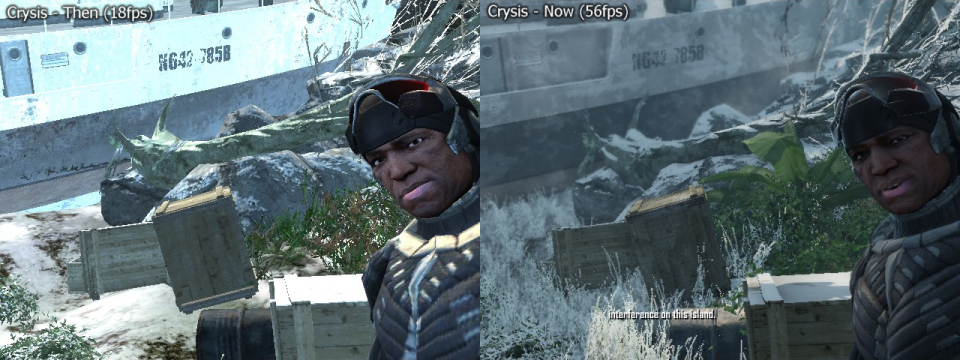Dear PC Developers: How to reduce software piracy
By BlazeHedgehog 86 Comments
A brief recap: June 2010, I found out I won a contest for about $2000 worth of Xbox Live Gold and Microsoft Points (a "lifetime", in their words). It took me six or seven months, but I sold most of it off and ended up buying a handful of new goodies with it, most importantly some new PC hardware that finally put me in the same generational ballpark as everyone else. I can now comfortably run Crysis, Unreal Engine 3 games, so on and so forth (see also: my last blog).

Not too long ago, Team Meat's co-founder Ed McMillen said something controversial about PC game piracy to IGN. To summarize: Super Meat Boy doesn't have any anti-piracy DRM. Ed McMillen doesn't care if anybody pirates his game, because to him, anybody who plays Super Meat Boy (even if it means not paying for it) is that much more likely to buy Team Meat's next game, whatever that may be. In his opinion, malicious pirates are rare.
"The dinosaurs of marketing are really upset by piracy. They think it's literally stealing," he says. "They're old. That's really the reason. They're old and their ideas are old. They don't understand where we are now. They don't understand the mentality of people who are pirating things. They see them as thieves, the same people who go and shoplift. I don't f*@#ing shoplift but I have pirated sh@%-loads of stuff. Like it's just not the same, it's not the same thing at all."
I don't own a copy of Grand Theft Auto 4 for the PC. If it really is true that the game may, for no discernible reason, run absolutely awful on my system, I don't want to roll the dice and buy it. That leaves me with one of two options: Satisfy my own curiosity through the dubious medium of software piracy, or try really really hard to forget that the PC version of GTA4 even exists at all. The latter option is fine, I guess - I already own GTA4 for the Xbox 360, though that would mean missing out on all of the rad car mods and graphical patches people have been producing for the PC version (which as I've found are 90% of the fun)."Sh@% changed," says McMillen, warming to his theme. "Deal with it. Sh@% went digital and this is how it works now. It's really easy to copy and give to other people."
But going by Team Meat's example, it doesn't have to be this way. If there was a demo for Grand Theft Auto 4 on the PC, this problem simply wouldn't exist - I could download the free trial version, see how it runs, and make a decision from there. The idea here is that a large number of pirates are simply curious about a game, so they, in essence, "make their own demo" - and oh, how convenient - this "demo" just so happens to include the entire rest of the game, too. Unfortunately for a platform that defined itself by the concept of " Shareware", freebie demos for top-tier game releases these days are getting fewer and farther between. Epic Games' Cliff Bleszinski has made it clear that he believes having to take time to produce a demo eats up money and effort that could be better spent on the main game itself - and you'll notice that the only Epic-developed game in the last six years to have a demo was Unreal Tournament 3 ( Bulletstorm was developed by People Can Fly). Gears of War certainly has never had a demo, not on Xbox 360 or even on PC for the release of Gears of War 1. Another prevailing train of thought is that if your game is "important" enough, you simply don't need a demo. I'm sure everybody remembers the Silent Cartographer demo for the original Halo - but the franchise didn't see another demo release for nearly a decade. Even then, it's been implied that the demo for Halo Reach was only to test an Xbox 360 Dashboard upgrade.
And then there's an even bigger problem: developers and publishers who release demos in an attempt to trick consumers in to buying the full product. Bulletstorm, despite having a playable demo, loses points for the fact that what you're allowed to play is literally 3 minutes out of a 20+ minute mission. Before you're even offered an opportunity to get a feel for the game's ebb and flow, you're pulled out of the action and told to buy the full game. In comparison, the original DooM, a game that popularized the first-person shooter, gave you practically an hour of content for free before asking you to pony up the cash back in 1993 - and I'd say that franchise made parent company iD Software very, very happy.
So to the Cliff Bleszinskis of the world, I say this: take the money you're funneling in to SecuROM, or Starforce, or whatever "You must always be connected to the internet 24 hours a day, 7 days a week, forever" anti-piracy solution you've developed, and redirect it in to creating a meaty demo for your game. Something that offers a good, long, detailed look at the work you've done, and does not try to fool the consumer in to a purchase with some sort of stupid "Gotcha!" bait-and-switch moment. This goes back to another recent blog I wrote, about Tom Kalinske's aim to make the Sega Genesis a bigger success than Nintendo's hardware offerings: Kalinske was the man who proposed packaging copies of Sonic the Hedgehog for free with the Genesis. Sega of Japan's board of directors were genuinely offended at the idea of giving their best content away at no charge to consumers. Kalinske did it anyway, and it proved to be one of his first major successes at the company (before Sega of Japan eventually drove him away - read my blog on the matter if you haven't already).
The ultimate goal in all of this is to satisfy a would-be pirate's curiosity. To showcase everything from how well the game runs on a particular computer system, to what the game itself is even about. No smoke and mirrors, no teasing, just a lengthy, worthy demonstration. I guarantee piracy rates would see a decline.
